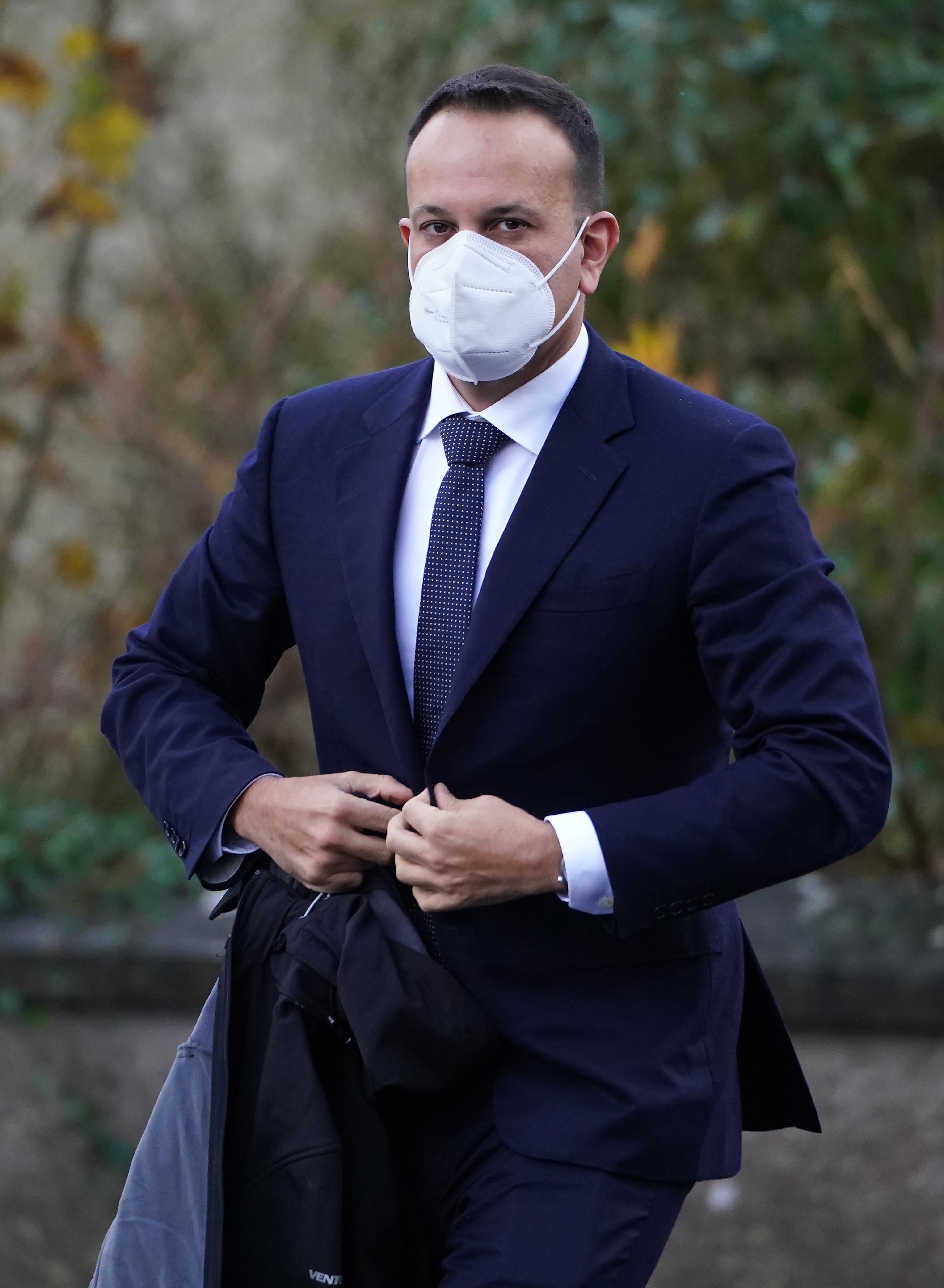Time to relax the rules around close contacts, Leo Varadkar says
Cabinet will meet on Wednesday to consider advice from the CMO on reducing the isolation period for people who are close contacts of positive cases.

Your support helps us to tell the story
From reproductive rights to climate change to Big Tech, The Independent is on the ground when the story is developing. Whether it's investigating the financials of Elon Musk's pro-Trump PAC or producing our latest documentary, 'The A Word', which shines a light on the American women fighting for reproductive rights, we know how important it is to parse out the facts from the messaging.
At such a critical moment in US history, we need reporters on the ground. Your donation allows us to keep sending journalists to speak to both sides of the story.
The Independent is trusted by Americans across the entire political spectrum. And unlike many other quality news outlets, we choose not to lock Americans out of our reporting and analysis with paywalls. We believe quality journalism should be available to everyone, paid for by those who can afford it.
Your support makes all the difference.Tanaiste Leo Varadkar has said it is time to “relax the rules around close contacts” amid fears over staffing in key sectors.
Chief medical officer Dr Tony Holohan is to issue advice on reducing the isolation period for people who are close contacts of positive Covid-19 cases, which will be considered by Cabinet on Wednesday.
Mr Varadkar has suggested that people who have received the booster vaccine, do not have symptoms and have produced a negative antigen test could be exempt from the rules.
The Tanaiste also said there are grounds for “cautious optimism” that pandemic restrictions, such as the 8pm curfew on hospitality, could be eased in February.
I do think we need to relax the rules around close contacts, but I also think we need to do it in a way that is safe.
“Essentially, when it comes to any public health advice, you have to make sure that it does more good than harm,” Mr Varadkar said about plans to ease close contact rules.
“We do have a problem at the moment where, for the first time since the pandemic began, some supermarkets have to close because staff are out because they’re close contacts.
“Some childcare facilities are closing and people are being denied healthcare in some instances – not because of Covid – but because people are at home, crucial staff are at home, because they’re close contacts and have been told not to go to work.”
At the weekend, the European Centre for Disease Prevention and Control (ECDC) issued advice saying close contact rules could be eased in situations where countries “face high or extreme pressure on healthcare systems and other functions in society, including essential services”.
Mr Varadkar told RTE News: “There are three different scenarios depending on the impact that contact rules are having on your economy and society.
“Certainly from my point of view, I think for people who are boosted, who have the third dose, who don’t have symptoms, who have a negative antigen test, it would make sense for us to allow them to go back to work and also get on with their normal lives.”
The ECDC said that for these cases antigen tests would have to be carried out by professionals, and could not be self-administered at home.
“These are the things that obviously, the CMO and his team are going to consider and they’re going to advise us on,” Mr Varadkar said.
“I do think we need to relax the rules around close contacts, but I also think we need to do it in a way that is safe.
“We’re really relying on the CMO to come up with the best advice on that and Government will act on that in the morning.”
Mr Varadkar also indicated that current restrictions, originally scheduled to be lifted on January 9, could be eased in a phased manner in February.
“I think there are grounds for cautious optimism, certainly in the medium term” he said.
“I think it’s very clear now that Omicron is less severe than previous strains of the virus.
“It’s inherently less severe, but also also a lot of immunity has built up between vaccines and people being exposed to Covid.
“And while we’re seeing record numbers of cases, that’s not translating into admissions to hospital, ICU admissions and deaths in the way it did in previous waves.
“That is very reassuring. But it’s not yet time to drop our guard.
“This is still unfolding. It probably hasn’t peaked. We expect it to peak through the course of January.
“That would then put us in the position to start easing restrictions in February, but this is still unfolding and it’s too early for that yet.”
I wouldn't like this to be the third summer in which Ireland has the strictest rules in Europe.
Mr Varadkar also said he wants to see less restrictions in place in Ireland this summer than in previous pandemic summers, when the country maintained some of the strictest rules in Europe.
He said: “We’re probably the only country in the world where for two years it hasn’t been possible to stand in a bar, or go to your office if you want to.
“Certainly my view is when it comes to easing the restrictions across the spring and summer, we shouldn’t be outliers.
“We should keep pace with the reopening that we see across Europe.
“I wouldn’t like this to be the third summer in which Ireland has the strictest rules in Europe.
“That was justifiable when people weren’t vaccinated, when we didn’t have vaccines. That wouldn’t be justifiable, in my view, this summer.
“We should try and keep pace with other European countries, but do it safely and do it in a phased way.”